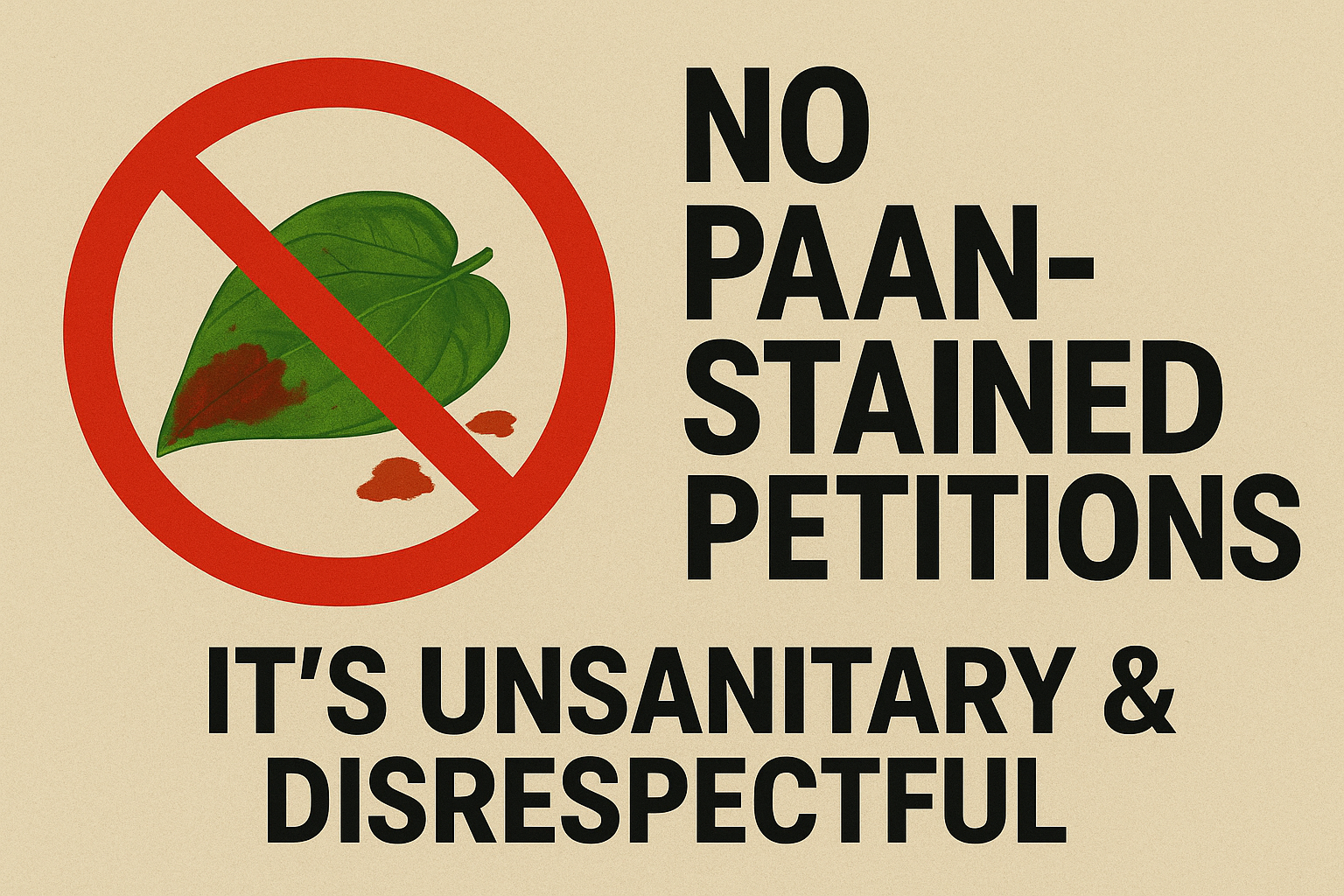
The Allahabad High Court has taken a firm stand against a practice that has long been tolerated but never seriously addressed in courts, which is the submission of legal documents stained with paan and saliva. In a recent directive, Justice Shree Prakash Singh called such behavior not only “disgusting and condemnable” but also a reflection of a “lack of basic civic sense.” It highlights the often-ignored issue of hygiene and respect in public institutions, especially in a country where paan chewing is a common habit.
The directive was issued after the court observed that many petitions and applications brought before it had visible reddish stains, likely from chewed paan or saliva used to turn pages. Justice Singh instructed senior officers of the court registry to ensure that no such petitions should be accepted in future. The order makes it clear that the judiciary will no longer overlook habits that compromise both cleanliness and dignity within court proceedings.
The timing of the directive is notable. Earlier this year, the Uttar Pradesh Legislative Assembly faced similar embarrassment when paan stains were discovered on official documents and furniture inside the assembly hall. Speaker Satish Mahana was compelled to impose strict fines on legislators and staff who were found guilty of chewing paan in the assembly premises. These incidents show that the problem extends far beyond social habits in streets and public spaces; it has seeped into the very institutions where law and governance operate.
Justice Singh expressed particular concern over the health risks posed by saliva-stained papers. He warned that such careless habits could lead to infections among people handling the documents, including court clerks, oath commissioners, and judges themselves. His words carried a note of urgency: “If such kind of filthy practice is not restrained, the same will create cause of infection to persons who would come into contact with such papers.”
This directive also raises deeper questions about civic responsibility. While paan chewing is a cultural habit in many parts of India, spitting in public spaces or leaving behind stains is widely criticized. Streets, railway stations, government offices, and now courtrooms have all suffered from this neglect of public hygiene. The court’s action is a reminder that respect for public institutions is not only about following legal procedures but also about maintaining dignity in behavior.
Legal professionals and staff play an important role in shaping the culture of the court. By submitting stained documents, they not only show disregard for hygiene but also disrespect the institution itself. The fact that the court had to formally direct staff to reject such documents shows how serious and widespread the problem has become. Justice Singh noted that contamination could happen at several levels, from clerks handling papers to officers processing them, and that strict supervision was necessary to prevent recurrence.
The issue also ties into the broader national conversation on cleanliness and civic responsibility. Since the launch of the Swachh Bharat Abhiyan, India has seen campaigns against open defecation, littering, and spitting in public. Yet old habits die hard, and the persistence of paan stains in courts and government buildings suggests that enforcement must go hand in hand with awareness. The court’s decision sends a strong message that professional spaces demand a higher level of discipline and respect.
Ultimately, the Allahabad High Court’s ban is more than a matter of keeping paperwork clean. It is about upholding the dignity of the judicial process, protecting the health of those who work within it, and setting an example of civic discipline.
It may seem small in the larger context of judicial reforms, but it carries symbolic weight. It is a reminder that respect for the law begins with respect for the spaces where the law is practiced. Clean papers are not just a matter of appearance but a reflection of respect for the system and for the people who serve it.





















